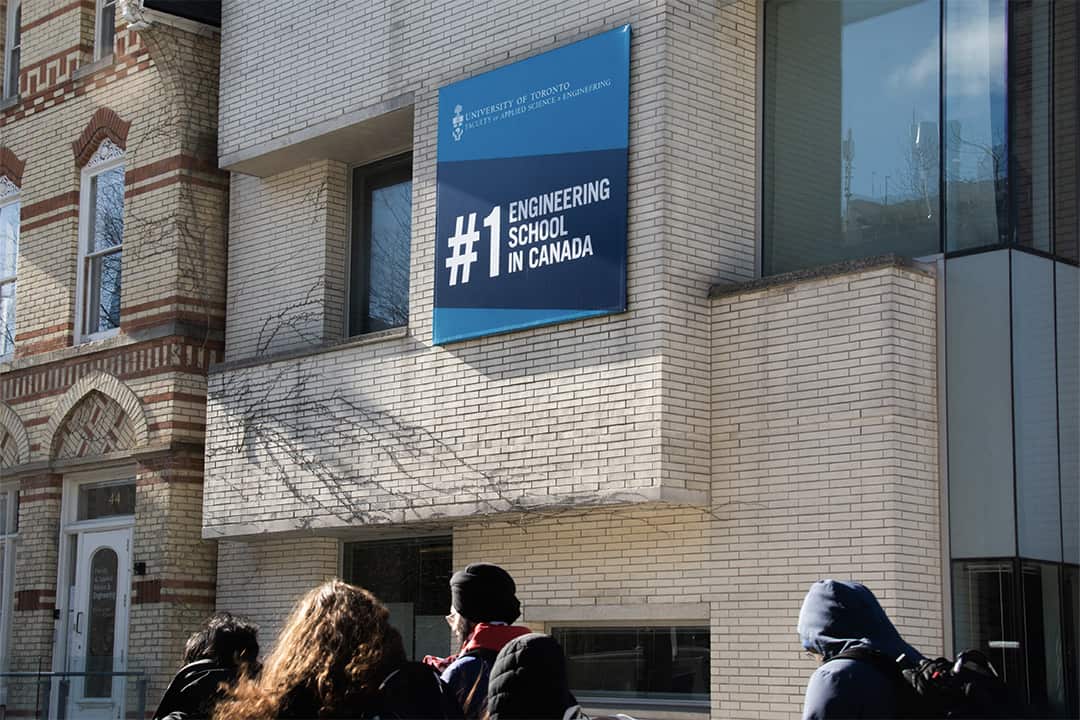A recent TikTok posted on January 23 revived the age-old byword of U of T as the “Harvard of the North.” In response to being asked about how it feels to go to the “Harvard of the North,” a supposed U of T student in the video briefly glances at the camera and admits, “It feels awesome.” Although I’m sure the video is intended to be purely satirical, it embodies the occasionally elitist attitude that some U of T students have about going to this school.
As of February 4, the video has amassed over 189,000 views and stirred a reactionary article published in Narcity. The heated comments under the TikTok are divisive; some argue for the Ivy League title to be given to McGill University, while others question the validity of the criteria used to rank schools. While social media arguments — serious or not — can often consume us, we need to take a step back and open our eyes towards what it means to be a U of T student, sans the labels and rankings.
Rankings and all
As an academic institution, U of T is undoubtedly a world-renowned school that attracts students from over 170 countries annually. These students from across the world, contributing to nearly 30 per cent of the entire student body as of the 2021–2022 academic year, fly to Canada because they understand the value of a U of T diploma.
It cannot be denied that the soaring global interest in U of T may have something to do with its place in various university rankings. The BlueSky Thinking Ranking of University Rankings of 2022–2023, published collaboratively by Quacquarelli Symonds and Times Higher Education, recently ranked U of T 13th among all North American universities; University of British Columbia and McGill University were ranked 21st and 23rd respectively.
When observing U of T’s self-congratulatory article on its ranking as first in Canada, and 18th in the world on the Times Higher Education World University Rankings of 2023, it becomes all the more evident that rankings are important to both U of T as an institution and the public.
However, what is most notable about these rankings is that schools on the list that share similar ranks with U of T are nowhere within the realm of Harvard University. Rather, we are typically equated to US schools such as UCLA, Cornell, or University of Michigan-Ann Arbor. Notwithstanding some exceptions, Harvard is generally ranked within the top three schools globally.
One could argue that the rankings themselves exemplify why U of T is the “Harvard of the North”: it is the highest-ranked school in Canada, as is Harvard in the US. In my view, however, the label is more restrictive than promising. It ingrains in us the idea that U of T is merely a “good-enough” version of another school rather than one in the same league as Harvard.
Rankings and nothing
It has almost been a decade since The Globe and Mail published an article discussing if a U of T student could get into Harvard. The piece, penned by two U of T alumni, draws the conclusion that we can never directly cross swords with Harvard because of our inherent differences; while U of T is more research-oriented and focused on its graduate programs, Harvard revolves around its undergraduate school, Harvard College. The article concludes that U of T students must focus on how they can better improve their institution rather than on how to “[masquerade] as Canada’s answer to Harvard, Yale, and Princeton.”
We must remember that, to much surprise and dismay, a postsecondary institution is not all about rankings! Every time students place too much focus — or indulge in social media arguments — on whether our ranking justifies our identity as a supposed Ivy-equivalent, we draw attention away from what U of T can do better on an institutional level.
Further, a temporary ranking is becoming increasingly independent from a school’s prestige. In fact, numerous medical schools and law schools in the US have recently made the decision to withdraw from the US News and World Report process because being ranked does not advance their goals as professional schools. The common rationale is that the ranking system’s metrics push schools to enroll students with the highest grades or test scores, while the institutions’ criteria for acceptance are more holistic.
My purpose isn’t to suck out the joy of either praising or poking fun at U of T with its nickname. After all, I am aware that U of T students do not take the Harvard quip too literally — the same may not necessarily apply to McGill students. But with the standards of ranking and evaluating schools becoming muddier and less nuanced than ever, it is important to ask ourselves what U of T is without its ranking. Unless we are content with what U of T’s value is as the institution itself — not as “number one in Canada” or “Harvard of the North” — we will be perpetually seeking another label to advertise ourselves as a business rather than an educational institution.
Eleanor Park is a second-year student at Trinity College studying English and religion. She is an associate comment editor at The Varsity.


